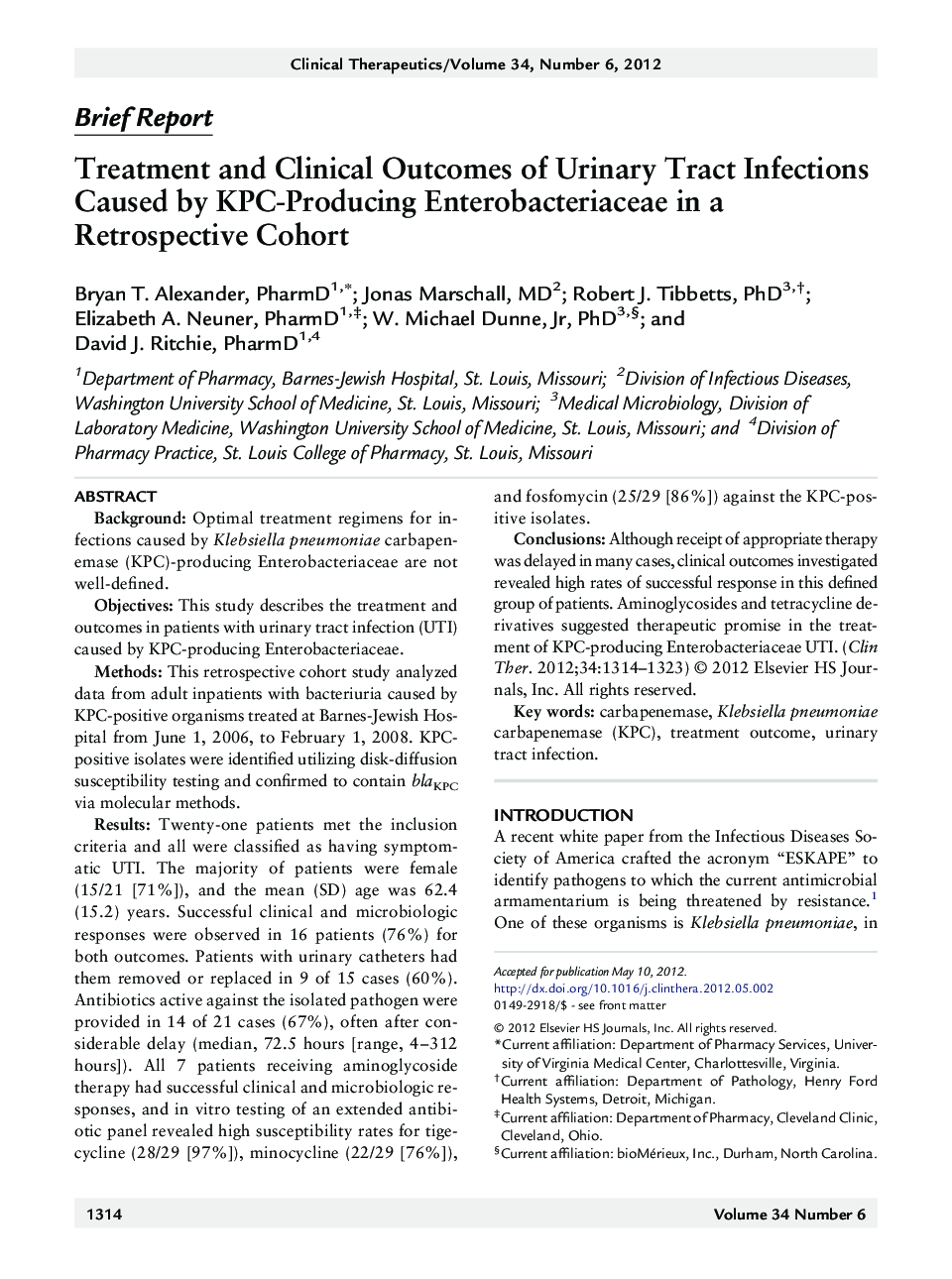| Article ID | Journal | Published Year | Pages | File Type |
|---|---|---|---|---|
| 5825785 | Clinical Therapeutics | 2012 | 10 Pages |
BackgroundOptimal treatment regimens for infections caused by Klebsiella pneumoniae carbapenemase (KPC)-producing Enterobacteriaceae are not well-defined.ObjectivesThis study describes the treatment and outcomes in patients with urinary tract infection (UTI) caused by KPC-producing Enterobacteriaceae.MethodsThis retrospective cohort study analyzed data from adult inpatients with bacteriuria caused by KPC-positive organisms treated at Barnes-Jewish Hospital from June 1, 2006, to February 1, 2008. KPC-positive isolates were identified utilizing disk-diffusion susceptibility testing and confirmed to contain blaKPC via molecular methods.ResultsTwenty-one patients met the inclusion criteria and all were classified as having symptomatic UTI. The majority of patients were female (15/21 [71%]), and the mean (SD) age was 62.4 (15.2) years. Successful clinical and microbiologic responses were observed in 16 patients (76%) for both outcomes. Patients with urinary catheters had them removed or replaced in 9 of 15 cases (60%). Antibiotics active against the isolated pathogen were provided in 14 of 21 cases (67%), often after considerable delay (median, 72.5 hours [range, 4-312 hours]). All 7 patients receiving aminoglycoside therapy had successful clinical and microbiologic responses, and in vitro testing of an extended antibiotic panel revealed high susceptibility rates for tigecycline (28/29 [97%]), minocycline (22/29 [76%]), and fosfomycin (25/29 [86%]) against the KPC-positive isolates.ConclusionsAlthough receipt of appropriate therapy was delayed in many cases, clinical outcomes investigated revealed high rates of successful response in this defined group of patients. Aminoglycosides and tetracycline derivatives suggested therapeutic promise in the treatment of KPC-producing Enterobacteriaceae UTI.
